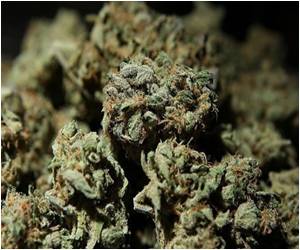Some chemical compounds found in marijuana could help treat multiple sclerosis-like diseases in mice, say researchers.

Dr. Ewa Kozela of Tel Aviv University said that their study looks at how compounds isolated from marijuana can be used to regulate inflammation to protect the nervous system and its functions.
Besides THC or tetrahydrocannabinol, the most plentiful and potent cannabinoid in marijuana is cannabidiol, or CBD.
The TAU researchers are particularly interested in CBD, because it offers medicinal benefits without the controversial mind-altering effects of THC.
In a 2011 study, they showed that CBD helps treat MS-like symptoms in mice by preventing immune cells in their bodies from transforming and attacking the insulating covers of nerve cells in the spinal cord.
In the latest study, the researchers set out to see if the known anti-inflammatory properties of CBD and THC could also be applied to the treatment of inflammation associated with MS.
Advertisement
The researchers concluded that the presence of CBD or THC restrains the immune cells from triggering the production of inflammatory molecules and limits the molecules' ability to reach and damage the brain and spinal cord.
Advertisement
Source-ANI















